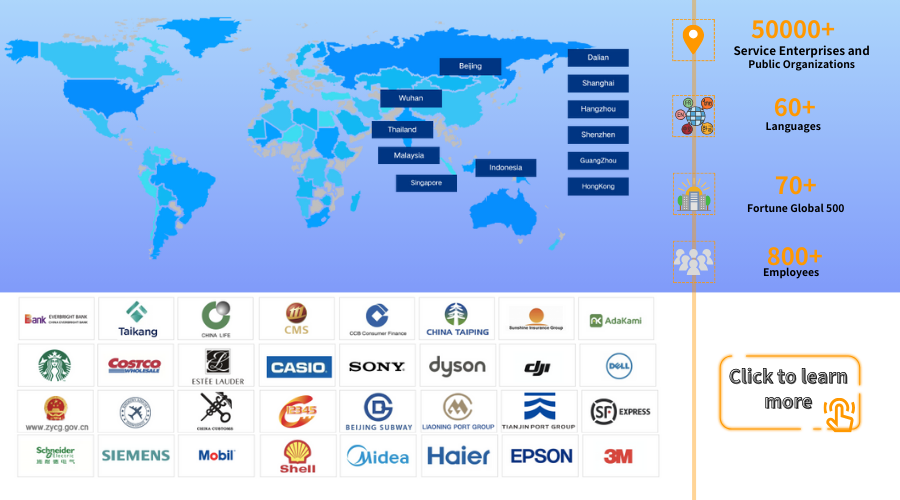IT Ticketing System Features: What to Look For
Article Summary:Not all systems offer the full set of features and you may end up using a combination of tools to achieve the desired results.In general, here’s what to look for when choosing IT ticketing software.
Table of contents for this article
An IT ticketing system, also known as a help desk ticketing system, is an essential tool for any organization's IT department. It allows users to submit support requests and system issues, and enables the IT team to track, manage, and resolve those requests in an organized manner. With so many ticketing system options on the market, it's important for businesses to carefully evaluate the key features and functionality needed to support their specific IT infrastructure and user needs.

Not all systems offer the full set of features and you may end up using a combination of tools to achieve the desired results.In general, here’s what to look for when choosing IT ticketing software.
01 Flexibility, Customization, and Integration capabilities
When selecting an IT ticketing system, consider focusing on platforms that offer flexibility, customization, and integration capabilities. Flexible systems allow for custom fields, forms, and workflows to fit an organization's unique processes. Look for the ability to customize ticket templates, statuses, priority levels, and other settings. Integration is also key, as the ticketing solution should seamlessly integrate with other applications and systems used daily like email servers, remote monitoring tools, VPNs, and directories. Tight third-party integrations minimize manual data entry and ensure all relevant information is captured in one centralized place for visibility.
02 User experience
User experience should also be top of mind. Select a system designed with both agents and requesters in mind.
For users submitting tickets, prioritize ease of use, self-service features, and mobile functionality. Users should be able to quickly and intuitively log issues from any device.
For the IT team, the interface needs to be efficient and streamlined. Agents require straightforward access to the full ticket history, attachments, knowledge base articles, and all other pertinent details to resolve incidents swiftly. Queues, filters, and views enable agents to effectively manage and prioritize workload.
03 Robust features
When it comes to functionality, look for robust features like templates, workflows, notifications, and reporting. Templates standardize common requests and automate fields, saving time. Flexible workflows ensure issues progress through the defined lifecycle with automated alerts keeping all parties informed. Comprehensive reporting gives leadership visibility into key metrics like ticket volumes, resolution times, backlogs, and more for capacity planning and process improvement. Data should be exportable for further analysis.
04 Knowledge bases, Asset management, and Remote support tools
Consider solutions with built-in knowledge bases, asset management, and remote support tools as well. Knowledge bases reduce training time and repeat issues by providing a searchable collection of solutions. Asset tracking provides a single source of truth for all endpoint information, software, and contracts. Remote support empowers agents to troubleshoot and resolve issues more quickly by connecting directly to users' systems. Integrated chat can improve communication too.
05 Cost, Security, and Support
Cost, security, and support are also factors to weigh. Compare total cost of ownership including software, implementation, support plans, and any add-on modules. Make sure the solution meets industry standards for data protection, access controls, and encryption. Thorough implementation, training, and ongoing support services give the best chance of success.
Choosing the right IT ticketing system takes research but yields major dividends in streamlining support workflows and improving the experience for both users and agents. By prioritizing flexibility, ease of use, functionality, and integration, organizations can select a platform tailored to their unique IT environment and support objectives. A well-rounded system with the right features delivers visibility, accountability and efficiency across the entire ticketing lifecycle.
For example, Udesk's ticketing system is a AI-Powered system that is focused on providing your end-users with stellar self-service.
After AI optimization, this ticketing system simplifies and streamlines ticket management across all channels. It centralizes and oversees all support-related communications across multiple channels through a unified platform, while also possessing SLA management, intelligent assignment, and shared ownership functions.
Besides, Udesk's ticketing system have powerful customization capabilities to tailor your workflows, customer portal, agent roles, and other elements to personalize your help desk, making It uniquely yours.
If you choose to pair our knowledge base software with an easy-to-use IT ticketing system, you’ll get the best of both worlds: Simple, super-fast self-service, and uncluttered agent interface.
》》Take our Ticketing System for a spin—for free—to see how it can work for your business.
The article is original by Udesk, and when reprinted, the source must be indicated:https://www.udeskglobal.com/blog/it-ticketing-system-features-what-to-look-for.html
Customer Ticketing SystemTicketingTicketing Software

 Customer Service& Support Blog
Customer Service& Support Blog



